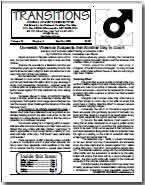
David, a victim of family violence. Source: News Limited
When David became a victim of family violence, he had nowhere to turn.
After months of escalating violence from his partner, Jennifer, he finally left their home, assisted by police who kept the peace while he packed his belongings into a trailer at two in the morning.
Then, he drove to the beach and slept in his car, the trailer behind him holding his worldly belongings.
“That night spent near the beach in the car with all my possession in the trailer, and the joggers looking in the window the next morning, that was ground zero for me,” David said.
A businessman with a senior job in a prominent Australian company, David has agreed to speak to the Herald Sun about his experiences with family violence to highlight the fact that men, too, can be victims.
Statistics released to the Herald Sun for the first time show that last financial year, men were the victims of 6122 family violence incidents at the hands of their current or former female partners.
While the number of attacks on women by their male partners or ex-partners was far greater – 29,064 last year – the number of male victims is not insignificant, and the impact on some was devastating.
David said that he did not know where to turn for help when his relationship turned violent, and said that support for men escaping violent relationships were virtually non-existent.
“In the end, I was fortunate that I was able to move into a short-term accommodation. But not everyone would be able to do that,” he said.
David wrote to the Herald Sun to congratulate the paper on its Take a Stand campaign, which aims to address to scourge of family violence.
“I fully support all activity to stamp out this often hidden horror,” he said.
“I am a survivor of domestic violence but don’t fit the traditional stereotype. I am male and I was attacked by my female partner.”
The Herald Sun met David, 43, in a city cafe. He bears a scar on his nose from the final time his partner assaulted him, hitting him in the head with a photograph frame.
“I know it’s not a wrinkle, it’s a scar,” he said. ” It’s not who I am. I thought about plastic surgery to get rid of it. A part of me is annoyed that she’s left that mark on me but I guess she’s marked my soul, too.”
The emotional scars are less obvious – until he tries to explain how the relationship affected his children. That’s when the tears come.
A divorced dad of two, David was pleased to meet a new partner, several years after his marriage ended.
The relationship started well and after a few months, they moved into an apartment together in an inner-city suburb.
“It was fantastic, we spent a lot of enjoyable time together,” David said.
But about nine months into the relationship, he noticed a change between them. His partner would criticise him, and escalate minor disagreements.
At first, David thought it was his fault, and he looked for ways to amend his behaviour.
“Like all men, I’m a bit of a problem solver, so I tried harder and harder to fix the problem and it became a bit of a cycle,” he said. “The issue would get bigger and bigger and her response would get bigger.”
About a year into their relationship, Jennifer started hitting him, striking him to the forearms and shins.
David would absorb the blows, hide the bruises, and didn’t strike back.
“About a night a week, I’d be sleeping in the car just because I couldn’t placate her. She’d ring me and say I was off sleeping with someone and I’d be like, ‘no, I’m here in the car’.
“Looking back, I can see there were so many problems but at the time I didn’t see that it was going pear-shaped. I was being led around by the nose. I was always trying to fix the problem. I couldn’t see that it was broken and couldn’t be fixed.”
There were three or four major blow-ups between them where Jennifer would rain blows on David. He estimates she probably hit him “40 or 50 times” during the final months of their relationship.
“She would be laying into me. I’m very proud of the fact that she pushed me to my absolute (limit) but I did not touch her. I walked away.”
About eight weeks before their relationship finally ended, Jennifer struck David across the face with the photo frame. It was the beginning of the end. David took refuge at his sister’s house, and returned to the apartment the next afternoon.
“Every single thing I owned was either smashed up, or she’d thrown it in the garbage,” he said.
“I had this big statue of Buddha and she’s broken that on the tiles. Everything was broken or gone. This includes all my kids’ toys, my daughter’s dollhouse. There was nothing that wasn’t targeted.”
The garbage truck had been that morning, so David had lost forever some precious mementos and keepsakes.
The neighbours who David presumes had heard shouting and the sound of things breaking didn’t question them. “I kept thinking ‘how can this happen in an apartment block?’ The neighbours looked at us funny.”
Throughout the final months, David continued to turn up to work. He never laid a complaint with police or sought an intervention order.
His sister knew of his problems but he didn’t tell his friends or his work colleagues.
“I had bruises all over me but I was capable of holding it together,” he said.
He was worried people would think he was the aggressor. “I had bruises on my forearms and shins and I thought people would see that in a negative context.”
He also worried that there would be a stigma attached to a man who was abused by his female partner.
“A couple of female friends know. I don’t want a sign around my neck saying ‘I was beaten by my missus’. I want people to take me at face value.”
Jennifer had pushed for them to go to counselling and they did; through that, David met the counsellor who would eventually help him go it alone.
The stress was horrendous.
“I was suicidal. I didn’t trust myself on our fifth-floor balcony. I still see the tree I wanted to drive my car into.
“The counsellor – a guy – was fantastic and I ended up seeing him individually and he was the one that first made me see this wasn’t a positive thing and I had to end it.”
After another counselling session in October 2010, David decided to leave the apartment and the relationship, and advised Jennifer of his plans.
“She started laying into me. I called the police and said something like ‘I’ve been kicked out and my partner’s being violent to me’.
David waited on the footpath outside late on a Thursday evening as police – a male and female – attended.
“They were great. They said I’d done the right thing.”
The police escorted David into the apartment and stayed with him while he packed some belongings.
They left when he did.
“Then I got a message to say that she was putting all my things out into the foyer. She’d also rung the police and told them what she was doing.”
The same police officers came back to the apartment and stayed with Jennifer in the bedroom while David tried to salvage all his items. He rented a trailer from a late-night service station and loaded it up at 2am.
“I got all the stuff out,” he said.
He praises the police and the counsellor for listening to him, and believing him.
His former partner rang his boss, harassed his ex-wife and continued to contact him, but gradually disappeared from his life.
“It’s taken me a long time to get my esteem back. I can see that now,” he said.
David said he wanted it known that men could be victims of family violence too, and he questioned what support services were available for men.
“There’s a whole lot of our story that’s missing. How do you get help for men? How do you raise awareness?
“I consider myself very lucky; I was strong enough to get out of it and now I’m thriving.
David now has a new circle of friends, new hobbies and sports, and has maintained his job.
“I am now in the best part of my life ever. It catapulted me into something amazing. It was literally my darkest hour but it didn’t kill me, so it made me stronger.”
Detective Acting-Superintendent Paul Binyon, from Victoria Police’s sexual and family violence unit, said police recognised there were male victims of family violence.
“Statistically, they are certainly outweighed significantly by female victims and generally what we find is the level of violence that is inflicted on them is not at the same level as that experienced by female victims,” Det-Acting Supt Binyon said.
“But it is important we acknowledge this problem does exist and we will continue to put time and resources into combating (violence against men).”
* David and Jennifer’s names have been changed.
Source: Men are victims of family violence too (http://www.heraldsun.com.au/news/law-order/men-are-victims-of-family-violence-too/story-fni0fee2-1226769041240)


